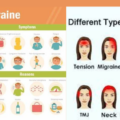How to Get Rid of Belly Fat Fast

How to Reduce Belly Fat
Belly fat is a type of body fat that accumulates around the abdomen. It is also known as visceral fat or abdominal fat. Belly fat is a major risk factor for many chronic diseases, including heart disease, stroke, type 2 diabetes, and some types of cancer.Excess belly fat not only affects our appearance but also poses serious health risks. Belly fat, also known as visceral fat, is associated with a higher risk of cardiovascular disease, type 2 diabetes, and other health conditions. However, with the right approach and lifestyle changes, it is possible to reduce belly fat and improve overall health. In this comprehensive guide, we will explore effective strategies and tips to help you on your journey to a slimmer waistline.
1.Eat a healthy diet Rid of Belly Fat
Eating a healthy diet is one of the best things you can do for your overall health, including reducing belly fat. Here are some tips for eating a healthy diet for belly fat reduction:
- Eat plenty of fruits and vegetables. Fruits and vegetables are low in calories and fat and high in fiber, which can help you feel full and satisfied. They are also good sources of vitamins, minerals, and antioxidants, which are important for overall health.
- Choose whole grains over processed grains. Whole grains are a good source of fiber and other nutrients. They are also digested more slowly than processed grains, which can help you feel full and satisfied longer.
- Lean protein. Lean protein, such as chicken, fish, beans, and lentils, can help you build muscle and burn more calories at rest.
- Healthy fats. Healthy fats, such as those found in avocados, nuts, and seeds, can help you feel full and satisfied and can also boost your metabolism.
- Limit sugary drinks. Sugary drinks are high in calories and can contribute to weight gain. Instead, drink water, unsweetened tea, or coffee.
- Limit processed foods. Processed foods are often high in unhealthy fats, sugar, and calories. Instead, focus on eating whole, unprocessed foods.
- Cook at home. When you cook at home, you have more control over the ingredients and the amount of calories and fat in your food.
- Read food labels. When you are shopping for food, read the food labels carefully. Choose foods that are low in calories, fat, and sugar.
Making these simple changes to your diet can help you reduce belly fat and improve your overall health.
Here are some specific foods that are good for reducing belly fat:
- Fruits and vegetables: Berries, apples, pears, leafy greens, broccoli, carrots, and tomatoes are all good choices.
- Whole grains: Brown rice, quinoa, oats, and whole-wheat bread are all good options.
- Lean protein: Chicken, fish, beans, and lentils are all good sources of lean protein.
- Healthy fats: Avocados, nuts, and seeds are all good sources of healthy fats.
- Water: Water is essential for good health and can help you feel full.
It is also important to avoid foods that are high in calories, fat, and sugar. These foods include sugary drinks, processed foods, and unhealthy fats.
If you are trying to reduce belly fat, it is important to make gradual changes to your diet and lifestyle. Don’t try to do too much too soon, or you are more likely to give up. Start by making small changes, such as eating one more serving of fruits or vegetables per day or walking for 30 minutes three times a week. As you get more comfortable with these changes, you can gradually make more changes.
2. Exercise regularly Rid of Belly Fat
Exercise is an important part of a healthy lifestyle, and it can also help you reduce belly fat. Here are some of the benefits of exercise for belly fat reduction:
- It can help you burn calories. When you exercise, you burn calories, which can help you create a calorie deficit. A calorie deficit is when you burn more calories than you consume, which is necessary for weight loss.
- It can help you build muscle. Muscle tissue burns more calories at rest than fat tissue, so building muscle can help you burn more calories even when you are not exercising.
- It can help improve your insulin sensitivity. Insulin is a hormone that helps your body use glucose for energy. When your body is insulin resistant, it means that it is not able to use glucose as effectively, which can lead to weight gain and belly fat. Exercise can help improve insulin sensitivity, which can help you lose weight and reduce belly fat.
- It can help reduce stress. Stress can lead to increased levels of cortisol, which can promote belly fat storage. Exercise can help reduce stress, which can help you lose weight and reduce belly fat.
There are many different types of exercises that can help you reduce belly fat. Some of the best exercises for belly fat reduction include:
- Cardio exercises: Cardio exercises, such as running, swimming, and biking, are a great way to burn calories and build muscle.
- Strength training exercises: Strength training exercises, such as lifting weights, can help you build muscle and improve your insulin sensitivity.
- Interval training: Interval training is a type of cardio exercise that alternates between short bursts of high-intensity exercise and periods of lower-intensity exercise. Interval training can be a more efficient way to burn calories than traditional cardio exercises.
- Yoga: Yoga can help improve your flexibility and core strength, which can help you reduce belly fat.
- Pilates: Pilates is a low-impact exercise that focuses on core strength and flexibility. Pilates can help you reduce belly fat and improve your posture.
If you are new to exercise, start slowly and gradually increase the intensity and duration of your workouts. It is also important to talk to your doctor before starting any new exercise program, especially if you have any health conditions.
3.Lose weight Rid of Belly Fat
Losing weight is a gradual process that takes time and effort. There is no quick fix, but there are some things you can do to help you lose weight safely and effectively.
Here are some tips for losing weight:
- Eat a healthy diet. This means eating plenty of fruits, vegetables, and whole grains. It also means limiting your intake of processed foods, sugary drinks, and unhealthy fats.
- Exercise regularly. Aim for at least 30 minutes of moderate-intensity exercise most days of the week.
- Create a calorie deficit. This means burning more calories than you consume. You can do this by eating fewer calories, exercising more, or a combination of both.
- Be patient and persistent. Losing weight takes time and effort. Don’t get discouraged if you don’t see results immediately.
- Make small changes that you can stick to. Don’t try to do too much too soon, or you are more likely to give up. Start by making small changes, such as eating one more serving of fruits or vegetables per day or walking for 30 minutes three times a week. As you get more comfortable with these changes, you can gradually make more changes.
- Find a support system. Having friends or family members who are also trying to lose weight can help you stay motivated.
If you are trying to lose weight, it is important to talk to your doctor. They can help you develop a personalized weight loss plan that is safe and effective for you.
Here are some additional tips that may help you lose weight:
- Drink plenty of water. Water can help you feel full and can also help boost your metabolism.
- Get enough sleep. When you don’t get enough sleep, your body produces more of the stress hormone cortisol. Cortisol can promote the storage of belly fat.
- Manage stress. Stress can also lead to increased levels of cortisol, which can promote belly fat storage. Find healthy ways to manage stress, such as exercise, yoga, or meditation.
- Quit smoking. Smoking increases your risk of developing belly fat. If you smoke, quitting is one of the best things you can do for your health.
Losing weight is a journey, not a destination. There will be ups and downs along the way, but if you stay committed to your goals, you will eventually reach them.
4.Get enough sleep Rid of Belly Fat
Getting enough sleep is essential for overall health and well-being. It is especially important for weight loss and belly fat reduction. When you don’t get enough sleep, your body produces more of the stress hormone cortisol. Cortisol can promote the storage of belly fat.
Here are some tips for getting enough sleep:
- Stick to a regular sleep schedule. Go to bed and wake up at the same time each day, even on weekends.
- Create a relaxing bedtime routine. This could include taking a warm bath, reading a book, or listening to calming music.
- Make sure your bedroom is dark, quiet, and cool. These conditions are ideal for sleep.
- Avoid caffeine and alcohol before bed. These substances can interfere with sleep.
- Get regular exercise. Exercise can help you sleep better at night.
- See a doctor if you have trouble sleeping. There may be an underlying medical condition that is causing your sleep problems.
Getting enough sleep is an important part of a healthy lifestyle. By following these tips, you can improve your sleep and your overall health.
Here are some additional benefits of getting enough sleep:
- Improved concentration and focus: When you’re well-rested, you’re better able to focus and concentrate on tasks.
- Reduced stress and anxiety: Sleep helps to reduce stress and anxiety levels.
- Boosted immune system: Sleep helps to keep your immune system strong, which can help you fight off illness.
- Improved mood: Sleep can help improve your mood and make you feel more positive.
- Increased energy levels: When you’re well-rested, you have more energy to get through the day.
If you’re not getting enough sleep, it’s important to make some changes to your lifestyle. By following the tips above, you can improve your sleep and your overall health.
5.Manage stress Rid of Belly Fat
Stress is a normal part of life, but too much stress can have negative consequences for your physical and mental health. Here are some tips for managing stress:
- Identify your stressors. What are the things that are causing you stress? Once you know what your stressors are, you can start to develop strategies for coping with them.
- Take breaks. When you’re feeling stressed, it’s important to take breaks from whatever is causing you stress. Get up and move around, take a few deep breaths, or do something else that you find relaxing.
- Exercise regularly. Exercise is a great way to relieve stress and improve your overall health. Aim for at least 30 minutes of moderate-intensity exercise most days of the week.
- Get enough sleep. When you’re well-rested, you’re better able to cope with stress. Aim for 7-8 hours of sleep each night.
- Eat a healthy diet. Eating a healthy diet can help improve your mood and energy levels, which can make it easier to cope with stress.
- Practice relaxation techniques. There are many different relaxation techniques that can help you manage stress. Some popular techniques include deep breathing, meditation, and yoga.
- Talk to someone. If you’re struggling to cope with stress, talking to a therapist or counselor can be helpful. They can teach you coping skills and help you develop a stress management plan.
It’s important to find what works best for you and to make stress management a regular part of your life. By following these tips, you can learn to manage stress and improve your overall health and well-being.
Here are some additional tips for managing stress:
- Set realistic goals. When you feel like you’re constantly under pressure to achieve unrealistic goals, it can lead to stress. Instead, set goals that are achievable and that you can realistically reach.
- Learn to say no. Don’t be afraid to say no to requests that you don’t have time for or that will add to your stress level.
- Delegate tasks. If you have too much on your plate, don’t be afraid to delegate tasks to others. This can free up your time so you can focus on the things that are most important to you.
- Take care of yourself. Make sure to take time for yourself to relax and de-stress. This could include reading, taking a bath, or spending time in nature.
- Avoid negative people. Spending time with negative people can make you feel more stressed. If you can, avoid people who are always complaining or who are always putting you down.
6.Quit smoking Rid of Belly Fat
Quitting smoking is one of the best things you can do for your health. Smoking is the leading cause of preventable death in the United States, and it is responsible for more than 480,000 deaths each year.
There are many benefits to quitting smoking, including:
- Reduced risk of cancer: Smoking is a major risk factor for many types of cancer, including lung cancer, throat cancer, and bladder cancer. Quitting smoking can significantly reduce your risk of developing these cancers.
- Reduced risk of heart disease: Smoking is a major risk factor for heart disease, stroke, and other cardiovascular problems. Quitting smoking can help improve your heart health and reduce your risk of these diseases.
- Reduced risk of lung disease: Smoking is a major risk factor for chronic obstructive pulmonary disease (COPD), which includes emphysema and chronic bronchitis. Quitting smoking can help improve your lung function and reduce your risk of COPD.
- Increased life expectancy: Quitting smoking can add years to your life. In fact, quitting smoking at age 35 can add up to 10 years to your life expectancy.
- Improved overall health: Quitting smoking can improve your overall health in many ways. You will have more energy, your skin will look better, and you will be less likely to get sick.
If you are thinking about quitting smoking, there are many resources available to help you. Your doctor can provide you with information and support. There are also many quit-smoking programs available, both online and in person.
Quitting smoking is not easy, but it is definitely possible. With the right help and support, you can quit smoking and improve your health.
Here are some tips to help you quit smoking:
- Set a quit date. Choose a date that is at least two weeks away, so you have time to prepare.
- Tell your friends and family that you are quitting. They can offer you support and encouragement.
- Get rid of all your cigarettes and tobacco products. This will make it harder to smoke.
- Find healthy ways to cope with stress. Exercise, relaxation techniques, and spending time with loved ones can help.
- Join a quit-smoking program. This can provide you with support and motivation.
- Don’t give up if you slip up. Just get back on track and keep trying.
Quitting smoking is a challenge, but it is definitely worth it. By quitting smoking, you can improve your health and live a longer, healthier life.Reducing belly fat requires a combination of healthy eating, regular physical activity, stress management, and lifestyle changes. It’s important to adopt a long-term, sustainable approach rather than seeking quick fixes. With consistency, patience, and dedication, you can achieve a slimmer waistline and improve your overall health. Remember, every small step counts, and the journey to a healthier you begins today







